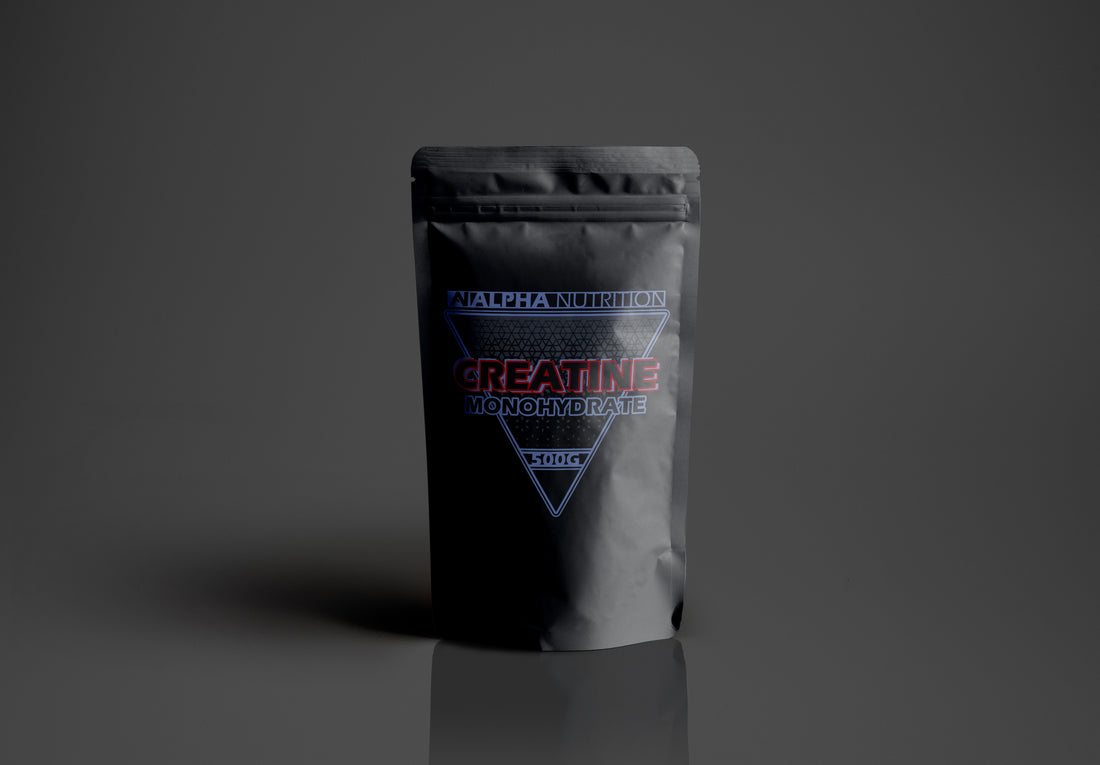Creatine
We’ve all heard of Creatine right? It’s one of the most popular products for gym supplementation, but why is it so good? What do people use it for? How does it work? And what benefits will it provide? I have the answers for you.
So let's start out with the basics. What is Creatine, or its scientific name, Creatine Monohydrate? Well it’s the most effective Ergogenic nutritional supplement currently available on todays market. (Ergogenic meaning a performance enhancer or something that gives a physical / mental edge whilst exercising or competing). Whether you’re an athlete, gym goer or anything else in between, it's the best in terms of increasing high-intensity exercise capacity and lean body mass during your training. It’s not only safe, but beneficial in preventing injury, an increase in ability, and when combined with carbohydrates and protein, an increase in muscular growth and retention.(1) It has also been reported to promote significantly greater gains in strength, fat free mass, and performance on high intensity exercise. (2)
So, what is Creatine and how does it work? Well, Creatine is a naturally occurring substance that’s found in your muscle cells. It helps the muscles to produce more energy during high intensity exercise and heavy lifting. It shares a lot of similarities with Amino acids, and the body can actually use the amino acids glycine and arginine to produce creatine. (3). About 95% of the body stores creatine in the muscles in the form of phosphocreatine.
When you use Alpha Nutrition’s Creatine, the stores of phosphocreatine are increased, which acts as extra stored energy in the cells producing a high energy molecule called ATP (ATP is basically the currency the body uses for energy (4)). The higher the levels of ATP, the better your body endures and performs during exercise.
Muscular Strength and Body Composition:
Alpha Nutrition’s Creatine, enables more total work/volume in your training sessions, which as we all know is a main factor in not only building muscle, but retaining it long term. A 2000 study was conducted where 23 males with at least 1 year of training experience were split into two groups. One group supplemented on Creatine, and the other a placebo. The Creatine group ingested 5 grams 4 times a day for 5 days. After the 5th day, supplementation was reduced to 2 grams. They were all tested on arm flexors, body composition and the upper arm muscles. They were measured before and after a 6 week resistance training programme. The conclusion of the experiment was that creatine supplementation during strength training led to a greater increase in arm flexor muscle strength, the upper arm muscle area and fat free mass, compared to strength training alone. You can find all details of the study here (5).
Increased Muscle Mass and Growth:
Multiple studies ranging from 1967 onwards, have been conducted and have demonstrated that Creatine has proved to augment lean mass and strength gains with resistance training. Throughout a minimum of a 3 week period, resistance training was undertaken 2 or more times per week. Lean mass and strength were analysed. There were a grand total of 250 supplements examined, and of those 250, only 6 had more than 2 studies which met the criteria of growth. One of those being Creatine (6). Since these studies, it has been proven to be one of the most effective ergogenic nutritional supplements available. To date, several hundred studies have been conducted, with nearly 70% reporting a significant improvement in exercise capacity, muscle growth and retention (7). Finally, a 1999 study which examines the effect of Creatine in conjunction with resistance training. The study found an increase in bench-press of 24% and 32% for the squat after a 12week period of creatine supplementation. This supplementation led to enhanced fat free mass and increased physical performance (8)
Dosage:
There are a few different ways to take Creatine. There is the “loading and maintenance” method, or the “Low-Dose daily supplementation”. With the loading and maintenance method, it introduces Creatine in intense levels, which is designed to completely saturate the muscle stores. This is around 20 to 25 grams per day taken 4-5 times per day for 5-7 days. Following on from this, you then maintain the saturation by taking roughly 3-5 grams per day. This is proven to work. Research has shown that this is the most effective way to rapidly increase intermuscular creatine concentrations. Both Adam Gonzalez Ph.D, and Jose Antonio Ph.D, favour this method. However there are possible side effects. Adam Gonzalez admits that a larger intense dosage may lead to gastrointestinal discomfort. Creatine will work without a loading protocol, and Alpha Nutrition has a recommends Low-Dose daily supplementation of 3-5 grams per day. Within around 3 weeks, it will allow your muscles to reach the same levels as with the loading protocol. It’s simpler, however may take longer.
Creatine is a supplement which has been rigorously tested through a number of years, and has been proven to work time and time again. It’s completely safe to use. Here at Alpha Nutrition we stock the highest quality creatine, if interested, you can view here. We also include the recommended daily dose of 3g in a single serving of our we rounded Pre-Workout formula, you can find it here.
Written by Cameron Tarpy 2022
- International Society of Sports Nutrition position stand: creatine supplementation and exercise - PMC (nih.gov)
- Effects of creatine supplementation on performance and training adaptations - PubMed (nih.gov)
- International Society of Sports Nutrition position stand: safety and efficacy of creatine supplementation in exercise, sport, and medicine - PMC (nih.gov)
- Physiology, Adenosine Triphosphate - StatPearls - NCBI Bookshelf (nih.gov)
- Effects of oral creatine supplementation on muscular strength and body composition - PubMed (nih.gov)
- Effect of dietary supplements on lean mass and strength gains with resistance exercise: a meta-analysis - PubMed (nih.gov)
- International Society of Sports Nutrition position stand: creatine supplementation and exercise - PMC (nih.gov)
- Performance and muscle fiber adaptations to creatine supplementation and heavy resistance training - PubMed (nih.gov)

